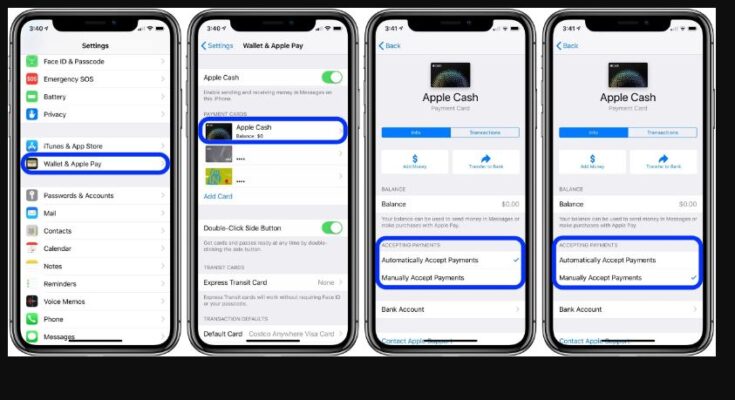Introduction to Apple to Restrict Third-Party App Updates for iPhones Outside the EU
Are you ready for a tech update shaking things up in the app world?
Apple has recently announced a game-changing decision to restrict third-party app updates for iPhones outside the EU. Hold onto your hats as we delve into what this means for developers and users worldwide!
Explanation of the EU’s General Data Protection Regulation (GDPR)
The EU’s General Data Protection Regulation (GDPR) is a comprehensive set of rules designed to give individuals more control over their data. It aims to harmonize European data privacy laws and reshape how organizations approach data privacy. Under the GDPR, companies are required to protect the personal data and privacy of EU citizens for transactions that occur within EU member states.
Key principles of the GDPR include transparency, accountability, and consent when collecting personal information from individuals. It also grants individuals certain rights over their data, such as access, correct, or delete the information held by organizations. Non-compliance with GDPR can result in hefty fines.
The GDPR represents a significant shift towards a more transparent and user-centric approach to data protection in today’s digital age.
Why is Apple implementing this restriction?
Apple’s decision to restrict third-party app updates for iPhones outside the EU stems from a growing concern over data privacy and security.
With the EU’s General Data Protection Regulation (GDPR) setting a high standard for user data protection, Apple aims to align its practices globally.
By limiting app updates to only those distributed through its App Store, Apple can ensure greater control over the privacy standards of these applications.
This move also serves as a proactive measure by Apple to safeguard user information from potential breaches or misuse by unauthorized third parties.
By tightening regulations around app updates, Apple is taking a stand against potential vulnerabilities that could compromise user data on their devices.
In an era where data privacy is paramount, Apple’s implementation of this restriction reflects a commitment to prioritizing user trust and security.
Impact on app developers and users
App developers outside the EU are now facing a new challenge with Apple’s decision to restrict third-party app updates. This move could disrupt their usual update processes and potentially impact user experience.
Developers may need to find alternative ways to ensure their apps remain functional and secure for users who have come to expect regular updates. Users’ trust in these apps might waver if they start experiencing issues due to delayed or restricted updates.
On the other hand, users may encounter inconsistencies in-app features and security patches if developers need help complying with these new restrictions. It may lead some users to rethink their reliance on certain third-party apps that cannot keep up with this change.
Both developers and users will have to adapt to this shift in how app updates are managed outside the EU, which could shape future practices within the industry.
Alternatives for app developers to still update their apps
Alternative strategies can be explored for app developers looking to navigate Apple’s new restrictions on third-party app updates outside the EU. One option is for developers to improve their apps’ core functionalities and features within the initial release, reducing the need for frequent updates. This approach aligns with Apple’s new policy and enhances user experience by delivering a more polished product from the start.
Another alternative is for developers to leverage push notifications or in-app messaging to communicate important updates or changes to users directly. Developers can ensure critical information reaches consumers by proactively engaging with their user base without relying solely on traditional update mechanisms.
Furthermore, exploring partnerships with EU-based app development firms or establishing entities within the EU could provide avenues for compliance with GDPR while enabling timely updates for global users. App developers can continue to thrive in an evolving digital landscape by adapting their strategies creatively and proactively seeking solutions.
Reactions from industry experts and privacy advocates
Industry experts and privacy advocates have mixed responses to Apple’s decision to restrict third-party app updates for iPhones outside the EU. Some view this move as a positive step towards enhancing data privacy and security for users globally. They applaud Apple for taking proactive measures to ensure compliance with stringent regulations like GDPR.
On the other hand, some critics argue that this restriction could limit innovation and competition in the app development industry. They raise concerns about how smaller developers might need help to keep up with these new requirements, leading to a less diverse range of apps available to consumers.
The debate surrounding Apple’s latest policy highlights the ongoing tension between safeguarding user data and fostering a dynamic ecosystem for app developers. It will be interesting to see how this decision shapes future developments in data privacy regulations and app development practices.
Conclusion
As we navigate the complex landscape of data privacy and app development, Apple’s decision to restrict third-party app updates outside the EU raises important questions about how tech giants handle user data. The implementation of stricter regulations like GDPR has prompted companies to reevaluate their approach to privacy protection.
Moving forward, both app developers and users must stay informed about these changes and adapt accordingly. While this may pose challenges for developers seeking global reach, it also underscores the growing importance of prioritizing user privacy in today’s digital age.
As technology continues to evolve, finding a balance between innovation and data protection will be key in shaping the future of app development.
By fostering transparency and accountability, we can create a safer online environment for all users while encouraging creativity and progress in the tech industry.
Good luck, game changer!
Explore our additional articles for more insights and enjoy!









